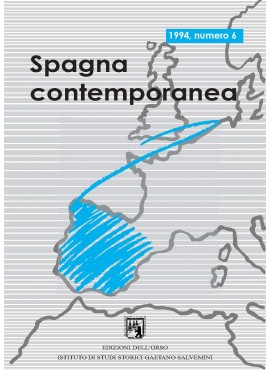De la regeneración intelectual a la legitimación ideològica: la politica cultural exterior de España (1921-1945)
Resumen
From the Intelectual Regeneration to the Ideological Legitimation: The Cultural Foreign Policy of Spain (1921-1945)
The organization in Spain of a cultural foreign policy was a process which began during the first decades of the XXth century. Their principal protagonists were reformist intelectuals, persuaded that the cultural opening was necessary in order to obtain the regeneration of the country and its approachment to the European great powers. The Spanish Civil War changed the evolution of this cultural opening. The Franco’s Regimen placed the cultural foreign policy at the disposal of its international objectives. At the beginning it was used to favour a best concurrence with the Axis powers. Later served to move away from them to approach to Anglo-Saxon nations, victorious at the Second World War. The cultural policy was, finally, a way to face up to the international isolation, to obtain the support of the catholic and conservatives circles of other countries, and to contribute to the ideo- logical legitimation of the Franquism abroad. Inside this process, Latin-America always had an outstanding role and acted as a soundbox of the adjustments of the cultural dimension to the foreign policy.
Descargas
Publicado
Número
Sección
Licencia
Derechos de autor 1994 Istituto di studi storici Gaetano Salvemini, Torino

Esta obra está bajo una licencia internacional Creative Commons Atribución-NoComercial-SinDerivadas 4.0.



